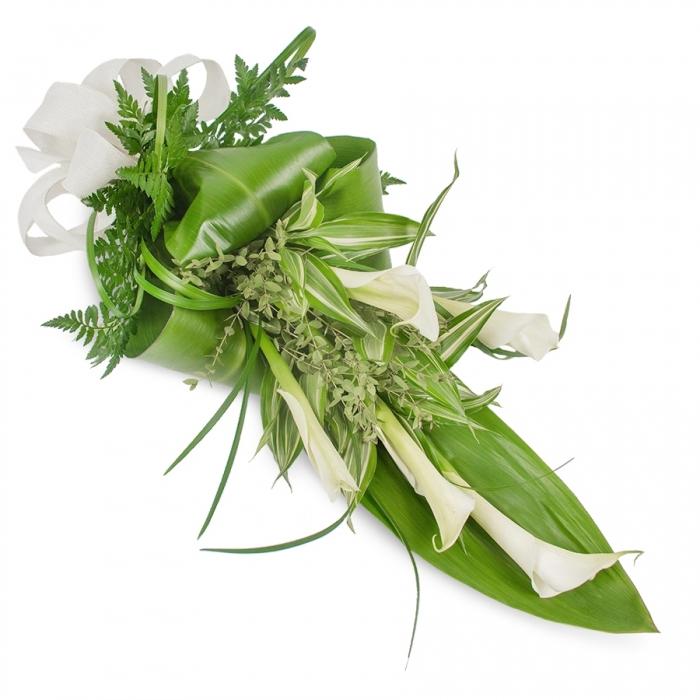18Feb 2022

A Journey Back Through the History of Funerals
It is baffling to think just how long funerals and the rituals that go along with them (including the use of a florist) have existed. It may be even more surprising to learn that some of the rituals and ceremonies we use today derived from funeral rituals from many thousands of years ago. Discover the expanding role of florists, how blooms that are considered romance flowers became associated with funerals, and other interesting facts as we take a journey back through the history of funerals.
The Origin of Burials
In prehistoric times, the removal of the dead was more about survival than ceremony. This was because dead bodies would attract animals and therefore would need to be well hidden to prevent attacks. However, rather than being buried, the dead would be deposited in caves or down shafts. Remains of prehistoric humans have been found in caves and shafts, indicating that this was the normal way, in which bodies would be buried. However, it wasn’t long until bodies would be buried rather than disposed of in other places.
Buried with Treasure
Remains from as long ago as 27,000 years ago were discovered to have been buried with a certain amount of ceremony and ritual. Some bones were found to have been dyed, and other remains were discovered to have been buried with possessions. This suggests that as humans evolved, they created assorted rituals associated with death. Much like modern Western funerals feature having flowers delivered and buried with the dead, ancient men would feature worldly gifts or tokens in their burial ceremonies.
Modern Funerals
Funeral services can vary quite drastically depending on the culture and religion of the deceased. In many countries, cremation has been the favoured way of disposing of dead bodies. One reason for this is that there may not be sufficient burial space for a community to house all the dead. Other reasons include religious beliefs, such as believing that the spirit can be released into the next world through the burning of the body. Cremation also allows the remains of a loved one to be shared with many family members and friends, and for the ashes to be scattered in the deceased’s favourite location.
The Significance of Flowers at a Funeral
In Western society, flower shops play an important role at funerals. It is here that mourners will organise flower delivery to the funeral home or in a show of sympathy to the deceased’s family. Flowers carry meanings such as purity and innocence which can be used not only in wedding flowers but also in funeral displays to show that the soul of the departed is once more in its pure state through death. What is quite wonderful about the tradition of using flowers at funerals is that even cheap flowers can be used to show respect to the dead, so mourners can show their respect whatever their budget may be.
Acting Appropriately at Funerals
It is important to show respect when attending a funeral, or when expressing your condolences to the family and friends of the deceased. This can mean researching the individual traditions of a certain religion or belief. For example, although in Christian cultures it can be entirely appropriate to send sympathy flowers to the family of the deceased, in other religions it may not. This is true in Judaism, as during the period of mourning, a family of the deceased prefer not to receive any gifts or gestures, as well-intended as they may be. To ensure you show sympathy in a respectful way, always research the traditions of the specific culture or religion of the person that has died.




